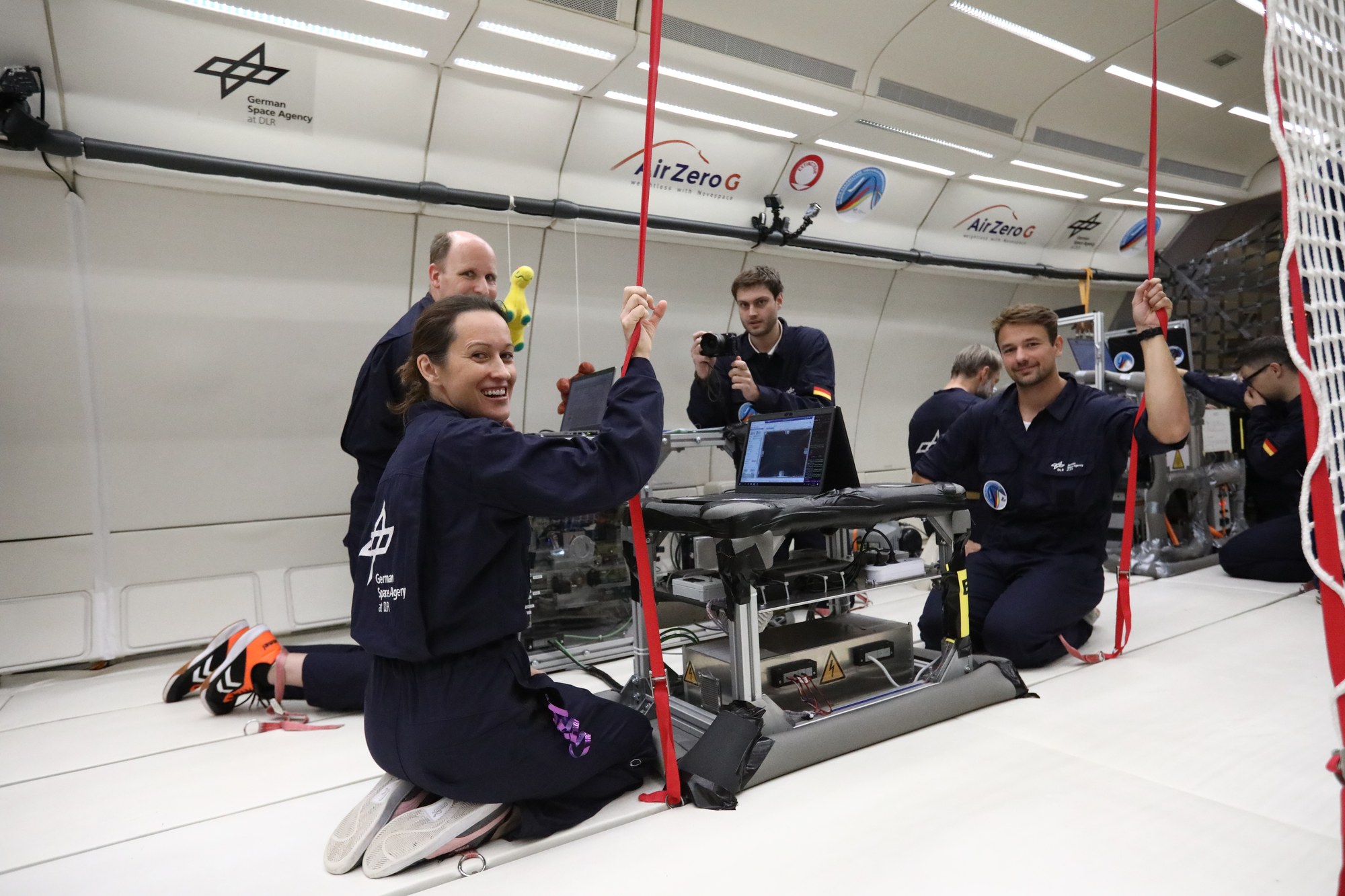SCARLETT – when Martian slopes start to slip during parabolic flight
SCARLETT – when Martian slopes start to slip during parabolic flight
Mars has an extremely tenuous atmosphere. While the pressure on Earth at sea level is approximately 1000 hectopascals, it is on average just six hectopascals at the Martian surface. This low pressure has consequences. Gas moves from cold to warm locations in porous soils, a process referred to as thermal creep. The German ESA reserve astronaut Nicola Winter is supporting researchers from the University of Duisburg-Essen with their SCARLETT experiment.
Credit: © DLR. All rights reserved

